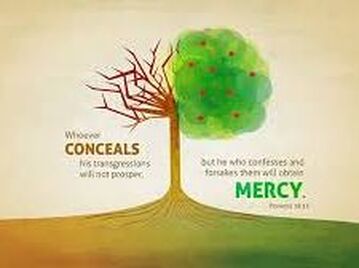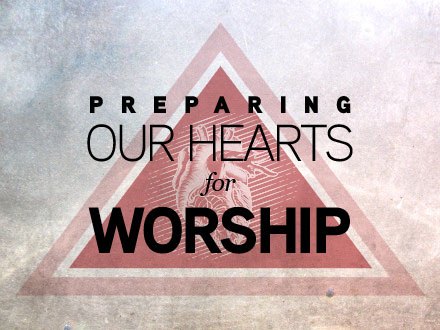|
__________________________________ "I press on toward the goal for the prize of the upward call of God in Christ Jesus." Phil. 3:14 (NASB) __________________________________
|
| Here at the end of 2019 the Lord has blessed us with the addition of some wonderful new families. We are particularly delighted to have the Keener family enter into membership with us! | It was a joy to witness Josiah's public profession of faith and baptism. May God grant him to grow in grace all his days! |
New Year's Eve
Join us as we ring in the new year in good old Hopewell style! Feel free to come or go whenever you want. We'll hang out and fellowship, and have a short time of prayer to inaugurate the new year.
Schedule:
Food: Pizza, drinks, and place settings are provided by the church. Please bring a side and/or dessert to share.
Fun: We have a gym and a room for 'less rowdy' fellowship. Please bring your board games, frisbees, balls, and whatever fun activities you'd like to share.
Be sure to invite your friends and RSVP to Kim!
Join us as we ring in the new year in good old Hopewell style! Feel free to come or go whenever you want. We'll hang out and fellowship, and have a short time of prayer to inaugurate the new year.
Schedule:
- 3pm - Sledding (pending snow). Meet at the Timmons' house. We'll return to chateau Timmons after we are done.
- 6pm - Pizza & Fun. Meet at Grace Church (1144 W Main St, Ashland).
Food: Pizza, drinks, and place settings are provided by the church. Please bring a side and/or dessert to share.
Fun: We have a gym and a room for 'less rowdy' fellowship. Please bring your board games, frisbees, balls, and whatever fun activities you'd like to share.
Be sure to invite your friends and RSVP to Kim!
_______________________________________
"Where your treasure is, there your heart will be also."
Matt 6:21
________________________________________
"Where your treasure is, there your heart will be also."
Matt 6:21
________________________________________
A Greater Treasure
A medical doctor recently said that socialistic healthcare is inevitable. His rationale was a simple deduction,
"People are too scared to die; they will therefore spend every cent of other people's money in order to stay alive."
This quote is not only insightful for our present political direction, it is also expressive of what characterizes an earthly minded person.
Christians are supposed to be heavenly minded people. Their treasure is in heaven and their hearts are knit to that place where God resides.
As such, the Christian's mind should generally turn towards heaven. He will regularly reminisce upon its nature, excellence, glory, and blessedness.
His mind will naturally flit there. It is a subject that fills him with wonder, sparks his curiosity, and inflames his heart's desires.
Thus, the idea of death is radically different for us than it is for our current culture. We do not scrape and claw with every ounce of our energy (and every penny of our neighbor) to to maintain our mortal existence. We are well prepared to die and let nature take its course.
Unlike the unbeliever, we happily leave an inheritance to our children's children. Doctors and hospitals do not need to eat up our life savings, for we have a greater treasure to inherit in the world to come.
While a Christian will not ever think to speed death along, he does have a healthy anticipation of it. For to live is Christ, and to die is gain. Or, in the words of the 19th c. English preacher, John Angell James,
He would instantly dissolve his ties with earth and, leaving his family and connections, fly the next moment to his eternal home. He is willing to wait as long as it is His heavenly Father's will to detain him upon earth, but he is willing to leave all and go to God whenever it is judged proper by Him to decide that he should go up to the mount and die.
In the advent season, our minds may all the more be raptured and caught up into the skies. We will likely think of his second coming and how our lives will be radically changed when he parts the clouds:
There will always be those who see death as a curse to be avoided. However, we as Christians have a different attitude. For those of us in Christ, death truly comes a blessing. When this mortal life is done, we shall die to sin and revel in the riches of heaven.
A medical doctor recently said that socialistic healthcare is inevitable. His rationale was a simple deduction,
"People are too scared to die; they will therefore spend every cent of other people's money in order to stay alive."
This quote is not only insightful for our present political direction, it is also expressive of what characterizes an earthly minded person.
Christians are supposed to be heavenly minded people. Their treasure is in heaven and their hearts are knit to that place where God resides.
As such, the Christian's mind should generally turn towards heaven. He will regularly reminisce upon its nature, excellence, glory, and blessedness.
His mind will naturally flit there. It is a subject that fills him with wonder, sparks his curiosity, and inflames his heart's desires.
Thus, the idea of death is radically different for us than it is for our current culture. We do not scrape and claw with every ounce of our energy (and every penny of our neighbor) to to maintain our mortal existence. We are well prepared to die and let nature take its course.
Unlike the unbeliever, we happily leave an inheritance to our children's children. Doctors and hospitals do not need to eat up our life savings, for we have a greater treasure to inherit in the world to come.
While a Christian will not ever think to speed death along, he does have a healthy anticipation of it. For to live is Christ, and to die is gain. Or, in the words of the 19th c. English preacher, John Angell James,
He would instantly dissolve his ties with earth and, leaving his family and connections, fly the next moment to his eternal home. He is willing to wait as long as it is His heavenly Father's will to detain him upon earth, but he is willing to leave all and go to God whenever it is judged proper by Him to decide that he should go up to the mount and die.
In the advent season, our minds may all the more be raptured and caught up into the skies. We will likely think of his second coming and how our lives will be radically changed when he parts the clouds:
- How will our bodies be transformed and how will our existence be different?
- What will it be like to ceaselessly smile and be glad?
- How glorious it will be to love and be loved perfectly and permanently?
- What will my occupation be in the world to come? How shall I benefit my neighbor and with what will I fill my free time?
There will always be those who see death as a curse to be avoided. However, we as Christians have a different attitude. For those of us in Christ, death truly comes a blessing. When this mortal life is done, we shall die to sin and revel in the riches of heaven.
Jolly Ol' Christmas Time
Join us this Friday December 13 @ 7pm at Hedstrom for a joyous time of fellowship. You'll have a merry time of song, music, Scripture, & entertainment. Families may bring a finger food / appetizer to share afterwards if able.
Join us this Friday December 13 @ 7pm at Hedstrom for a joyous time of fellowship. You'll have a merry time of song, music, Scripture, & entertainment. Families may bring a finger food / appetizer to share afterwards if able.
Baptism & New Member Reception
This Lord's Day we will have the blessed opportunity to receive the Keener family into membership. Josiah Ott will also be making his formal profession of faith and will be baptized during the service.
This Lord's Day we will have the blessed opportunity to receive the Keener family into membership. Josiah Ott will also be making his formal profession of faith and will be baptized during the service.
| WORSHIP WITH US Hedstrom Plastics 100 Hedstrom Drive Sunday's @ 10:30 | IMPORTANT DATES December 13 - Christmas Program December 15 - Member reception & baptism December 31 - New Year's Eve Party January (TBA) - New Parenting Series (evenings) |
_______________________________________
For as many of you as were baptized into Christ
have put on Christ.
Galatians 3:27
________________________________________
For as many of you as were baptized into Christ
have put on Christ.
Galatians 3:27
________________________________________
I Am Baptized!
...
The Ongoing Significance of the Sacrament
...
The Ongoing Significance of the Sacrament
A company in town recently had a "grand opening," complete with ribbon cutting ceremony with all the big wigs in town present: the mayor, city counsel members, chamber of commerce heads, etc. Speeches were given, sales were had, smiles were flashed, and hope for a wonderful addition to the community was created.
Another company has prospects for opening. The big wigs were all present again for the ceremonial first shovel of dirt as they broke ground for their new building project. Speeches were made, smiles were given, and anticipation for the completed building (and its ongoing merchandising) was created.
Imagine if everything stopped there. Imagine if after the ribbon cutting, everyone went immediately home and the store closed its doors.
That would be a real bust.
Yet this is how our baptisms are often regarded. They are usually seen as a "one and out" type ritual. Now it is something long ago and far away.
Though our baptisms may only happen once in our lives, this blessed ritual is to continue to have significance for us all through our lives.
Theologians call baptism an "initiatory rite." It's God's ribbon cutting that portrays the fact that we've just entered the kingdom of God through our union with Christ and His pardon of sin.
But we can also think of baptism as an "anticipatory rite." It anticipates a long walk with Christ, growth in faith, and a full salvation that is yet to come.
That's why we are to always remember our baptism, reflect upon it, and be challenged by it. Whether we remember the actual day of our baptism or how wet we got does not matter. What matters is that it happened. And we must bring that reality to bear on our lives.
We need to understand its reality and apply its significance regularly for our ongoing life. From time to time it is even good to say to yourself, "I've been baptized! I've been marked out as belonging to God. He's branded me as His own and washed me of my sin."
You wear your wedding ring each day, just like you "wear" your baptism. The water may have long dried up, but you've still been marked by the rite. And like the wedding ring, your baptism is to preach to you on a daily basis.
Your wedding ring reminds you of important truths: I'm loved; I'm united to my spouse; I have vows to keep.
Similarly, your baptism is to be a constant reminder of how you are loved by God, set apart to him, and have vows to keep towards him.
Paul wrote to the Galatians about baptism. These were not new converts getting ready to be baptized. They were already baptized members of the church. But he set their baptism before them and reminded them of its significance for their present lives:
"All of you who were baptized into Christ have clothed yourselves with Christ."
Paul was telling the Galatians: You've been baptized! You need to remember that. You need to remember that you have a new identity. You have new opinions, new desires, and should be demonstrating new actions keeping with that identity!
Though the water may have dampened your clothes long ago, it should not ever evaporate, spiritually speaking. You need to continue to work out the implications of your baptism and draw strength from the realities which it signifies.
Another company has prospects for opening. The big wigs were all present again for the ceremonial first shovel of dirt as they broke ground for their new building project. Speeches were made, smiles were given, and anticipation for the completed building (and its ongoing merchandising) was created.
Imagine if everything stopped there. Imagine if after the ribbon cutting, everyone went immediately home and the store closed its doors.
That would be a real bust.
Yet this is how our baptisms are often regarded. They are usually seen as a "one and out" type ritual. Now it is something long ago and far away.
Though our baptisms may only happen once in our lives, this blessed ritual is to continue to have significance for us all through our lives.
Theologians call baptism an "initiatory rite." It's God's ribbon cutting that portrays the fact that we've just entered the kingdom of God through our union with Christ and His pardon of sin.
But we can also think of baptism as an "anticipatory rite." It anticipates a long walk with Christ, growth in faith, and a full salvation that is yet to come.
That's why we are to always remember our baptism, reflect upon it, and be challenged by it. Whether we remember the actual day of our baptism or how wet we got does not matter. What matters is that it happened. And we must bring that reality to bear on our lives.
We need to understand its reality and apply its significance regularly for our ongoing life. From time to time it is even good to say to yourself, "I've been baptized! I've been marked out as belonging to God. He's branded me as His own and washed me of my sin."
You wear your wedding ring each day, just like you "wear" your baptism. The water may have long dried up, but you've still been marked by the rite. And like the wedding ring, your baptism is to preach to you on a daily basis.
Your wedding ring reminds you of important truths: I'm loved; I'm united to my spouse; I have vows to keep.
Similarly, your baptism is to be a constant reminder of how you are loved by God, set apart to him, and have vows to keep towards him.
Paul wrote to the Galatians about baptism. These were not new converts getting ready to be baptized. They were already baptized members of the church. But he set their baptism before them and reminded them of its significance for their present lives:
"All of you who were baptized into Christ have clothed yourselves with Christ."
Paul was telling the Galatians: You've been baptized! You need to remember that. You need to remember that you have a new identity. You have new opinions, new desires, and should be demonstrating new actions keeping with that identity!
Though the water may have dampened your clothes long ago, it should not ever evaporate, spiritually speaking. You need to continue to work out the implications of your baptism and draw strength from the realities which it signifies.
Church Membership
The leadership will be conducting interviews for membership, professions of faith, and baptism after morning services on December 8th. Anyone who would like to meet with the leadership is invited to contact us to schedule an interview.
LEARN MORE: Membership at Hopewell | Is your child ready to profess faith?
The leadership will be conducting interviews for membership, professions of faith, and baptism after morning services on December 8th. Anyone who would like to meet with the leadership is invited to contact us to schedule an interview.
LEARN MORE: Membership at Hopewell | Is your child ready to profess faith?
Hopewell Church
| WORSHIP WITH US Hedstrom Plastics 100 Hedstrom Drive Sunday's @ 10:30 | IMPORTANT DATES This Sunday - Carry in Lunch December 8 - New member interviews December 13 - Christmas Party December 15 - New member reception, baptisms |
_______________________________________
There is only one Lawgiver and Judge.
James 4:12
________________________________________
There is only one Lawgiver and Judge.
James 4:12
________________________________________
Here I Stand;
I Can Do No Other
Making God Alone the Lord of Your Conscience
I Can Do No Other
Making God Alone the Lord of Your Conscience
Today we remember Luther's nailing of the 95 Thesis, the spark that ignited the Reformation. And it is here we remember that our consciences are bound by no other authority than the Word of God.
We live in a day of many laws, pontifications, and advisements. From the Dear Abby column to the halls of Congress, from religious leaders to health guru's, we are bombarded with the mantra: "This is what you must do."
Yet the Reformational principle that resonates through history is this: our conscience as Christians is to be held captive by the Word of God. No other authority has primacy over us, for "we must obey God rather than men." (Acts 5:29)
In this respect Christians can be rigid and inflexible. They may be known to be annoying, roadblockers, and dissident. They have practiced civil disobedience and are willing to be fed to the lions because they know that Christ (and He alone) is to be obeyed. They have objected, opposed, and even started wars because the Word of God was regarded as the only supreme rule over their life and conduct.
Luther's firm standing at the Diet of Worms (1522) was just as (if not more) important than his 95 Thesis (1517). Luther was called before Charles V, the Holy Roman Emperor, and various high officials in the Roman Catholic church. In that assembly he was expected to recant his writings, wherein he expounded on the doctrines of justification by faith alone, the authority of Scripture, and the folly of indulgences.
"Here I stand; I can do no other," was his reply. In those words Luther gave vivid expression to his conviction that the Scripture was the inspired Word of God, who's authority outweighed that of the pope. He would not back down, even though his life could have easily been taken at that very moment, being executed as a heretic of the church.
Christ himself demonstrated this spirit when he walked the earth. He did not tolerate the extra biblical commands that the religious leaders touted. When standing before Pilate and Herod, he remained a silent protester against the absurdity of their courtroom demands.
Jesus had come to do the will of His Father and no one could enslave his soul.
It is true, there have been some men who have died for their convictions despite their beliefs not being founded upon the Word of God. But they have been few and far between.
Modern man, in particular, tends to be quite pliable. He often goes with the flow and bends to every whim that comes down the pike. That's because there isn't much spine in someone who puts man and man's thought up as his authority.
He will likely bow down and cow-tow to any law that is passed, any decree that is made, and any advice that is given. He may make a stink about it, but he'll eventually conform because he has no firm standard by which to live. He is governed by men and standards of men and is blown here and there by them, especially if it means having comforts or their very life taken away.
Yet Christians have been known as protesters (Protestants), Non-conformists, and dissenters throughout their history. They have been fed to lions, sent to the stocks, imprisoned, buffeted, burned, and beheaded, because their faith has been built upon the solid rock of God's infallible truth.
Even at Hopewell our leadership says, "Look to the Scripture." We do not want anyone to blindly follow what we say or do. No pope, pastor, prince, priest, or politician should have ultimate governance over you.
Rather, it should be as the old Presbyterians used to say,
"God alone is Lord of the conscience and has left it free from the doctrines and commandments of men which are in any respect contrary to the Word of God."
We live in a day of many laws, pontifications, and advisements. From the Dear Abby column to the halls of Congress, from religious leaders to health guru's, we are bombarded with the mantra: "This is what you must do."
Yet the Reformational principle that resonates through history is this: our conscience as Christians is to be held captive by the Word of God. No other authority has primacy over us, for "we must obey God rather than men." (Acts 5:29)
In this respect Christians can be rigid and inflexible. They may be known to be annoying, roadblockers, and dissident. They have practiced civil disobedience and are willing to be fed to the lions because they know that Christ (and He alone) is to be obeyed. They have objected, opposed, and even started wars because the Word of God was regarded as the only supreme rule over their life and conduct.
Luther's firm standing at the Diet of Worms (1522) was just as (if not more) important than his 95 Thesis (1517). Luther was called before Charles V, the Holy Roman Emperor, and various high officials in the Roman Catholic church. In that assembly he was expected to recant his writings, wherein he expounded on the doctrines of justification by faith alone, the authority of Scripture, and the folly of indulgences.
"Here I stand; I can do no other," was his reply. In those words Luther gave vivid expression to his conviction that the Scripture was the inspired Word of God, who's authority outweighed that of the pope. He would not back down, even though his life could have easily been taken at that very moment, being executed as a heretic of the church.
Christ himself demonstrated this spirit when he walked the earth. He did not tolerate the extra biblical commands that the religious leaders touted. When standing before Pilate and Herod, he remained a silent protester against the absurdity of their courtroom demands.
Jesus had come to do the will of His Father and no one could enslave his soul.
It is true, there have been some men who have died for their convictions despite their beliefs not being founded upon the Word of God. But they have been few and far between.
Modern man, in particular, tends to be quite pliable. He often goes with the flow and bends to every whim that comes down the pike. That's because there isn't much spine in someone who puts man and man's thought up as his authority.
He will likely bow down and cow-tow to any law that is passed, any decree that is made, and any advice that is given. He may make a stink about it, but he'll eventually conform because he has no firm standard by which to live. He is governed by men and standards of men and is blown here and there by them, especially if it means having comforts or their very life taken away.
Yet Christians have been known as protesters (Protestants), Non-conformists, and dissenters throughout their history. They have been fed to lions, sent to the stocks, imprisoned, buffeted, burned, and beheaded, because their faith has been built upon the solid rock of God's infallible truth.
Even at Hopewell our leadership says, "Look to the Scripture." We do not want anyone to blindly follow what we say or do. No pope, pastor, prince, priest, or politician should have ultimate governance over you.
Rather, it should be as the old Presbyterians used to say,
"God alone is Lord of the conscience and has left it free from the doctrines and commandments of men which are in any respect contrary to the Word of God."
Date with a Mission!
Let's help the Ott's raise funds for their adoption and deepen relationships at the same time. Invite a friend or two to go out for a date on Wednesday Nov. 6th. Go to BW3's in Ashland and show the ticket. The Ott's will receive 20% of the dinner's proceeds.
Let's help the Ott's raise funds for their adoption and deepen relationships at the same time. Invite a friend or two to go out for a date on Wednesday Nov. 6th. Go to BW3's in Ashland and show the ticket. The Ott's will receive 20% of the dinner's proceeds.
Mentors Needed
Ashland City School officials are developing a new program. The goal is to provide mentors for parents whose children are in the city schools. These mentors are to occasionally meet to provide practical guidance on parenting and decision making. Several families have already requested assistance. Request more information on becoming a mentor.
Ashland City School officials are developing a new program. The goal is to provide mentors for parents whose children are in the city schools. These mentors are to occasionally meet to provide practical guidance on parenting and decision making. Several families have already requested assistance. Request more information on becoming a mentor.
_______________________________________
The plans of the diligent lead to profit.
Proverbs 21:5
________________________________________
The plans of the diligent lead to profit.
Proverbs 21:5
________________________________________
The Scriptures speak about money more than any other topic. Approximately 2000 passages deal with the topic in some way or other. In the gospels alone, one out of every four verses deals with money.
Many other passages draw from the economic world. Redemption, ransom, forgiveness, sin-debt, are all terms that have financial undertones.
This only highlights how much of our lives should be dedicated to developing faithfulness in stewardship. But how do we do keep from feeding the urge to get and acquire? How do we honor God and keep from falling into the trap of materialism? Scripture is clear in its guidance.
1. The Power of "No."
This one word can kill off the materialism germ significantly. The disciplined power of delaying gratification and resisting the urge to impulsively buy shows that your heart is governed more by God than by things.
Esau's unbelief was expressed in how he rashly bought that fateful pot of stew. He was governed by passion and the moment, not reason and self control.
While a "hope deferred may make the heart sick" (Prov. 13:12), it is a fruit of the Spirit to be able to say, "No, I don't really need that right now."
2. Contentment vs. the Splurge
From whence does that "power of no" come? It flows from a heart that rejoices in God and His supply. We don't need to splurge and spend when we recognize the immense generosity of God in all that we already have.
Of course, the key to contentment is the upward focus. It's being immensely satisfied with God, and not so much the stuff He's bestowed upon us. Someone who can be content with the older model, the second hand buy, or with not having in the first place is someone who has made the Lord his greatest yearning above all else.
3. Keeping up with the Jesus
One doesn't feel the need to keep up with the Joneses if he's keeping up with Jesus. If you are not nurturing your relationship with Christ through regular worship, personal devotions, and prayer, let's admit it: you will be more susceptible to a spirit of materialism.
The Lord uses the means of grace to squelch our raging fleshly passions. We gain new desires and are conformed more to the image of Christ as we fellowship with God.
To put it another way, when you are worshipping God, you will be less apt to worship your wallet.
4. Plan a Budget & Diligently keep it
Growth takes diligence, accountability, and self control. A budget is just that for our finances.
Developing a detailed budget helps to set parameters on what we can and cannot have. It tells us "You can't have that," and makes us cut certain things out.
On the positive side, a budget will tell us what we really value. We're forced to say, "I'm putting this amount towards the Lord." Or it reminds us that diapers are more important than yet another trip to Macy's.
5. Spend, Save, Give Principle
That is biblical stewardship in a nutshell. We buy what we need, save what we can, and give with intentionality and liberality as much as we can.
Let's not forget about saving too. Too often teaching on stewardship focuses on spending and giving. But there's a great deal in Scripture about investing, saving, and building wealth for the future (and future generations).
Use Jars with Your Kids to Teach the Give, Spend, Share Principle.
6. All the Cool Kids Do It
Being cool is expensive. It is also vanity. When we value prestige and admiration, it's going to cost us. On the other hand, if we have our minds set on being esteemed by God, there will be less incentive to bust the bank on the latest fashions, phones, and trends.
7. What do you Value?
Do you value what the Bible values? If you do, you'll have a completely different financial focus.
For instance, what are your thoughts on kids? The world today prefers big vacations and exotic trips; that means fewer kids. But Scripture says that having children is a heritage (note the financial language again) from the Lord. In sum, kids have much more value in the eyes of God.
Take another example: Scripture commends the accumulation of wisdom over and above the accumulation of wealth. Wisdom is greater than gold (Pr. 16:16) and more precious than rubies (8:11). If you believe this, it will likely make a difference in what (and how much) you accumulate in life.
All this is to say, if you value what what the Lord values, there's going to be different spending priorities.
Many other passages draw from the economic world. Redemption, ransom, forgiveness, sin-debt, are all terms that have financial undertones.
This only highlights how much of our lives should be dedicated to developing faithfulness in stewardship. But how do we do keep from feeding the urge to get and acquire? How do we honor God and keep from falling into the trap of materialism? Scripture is clear in its guidance.
1. The Power of "No."
This one word can kill off the materialism germ significantly. The disciplined power of delaying gratification and resisting the urge to impulsively buy shows that your heart is governed more by God than by things.
Esau's unbelief was expressed in how he rashly bought that fateful pot of stew. He was governed by passion and the moment, not reason and self control.
While a "hope deferred may make the heart sick" (Prov. 13:12), it is a fruit of the Spirit to be able to say, "No, I don't really need that right now."
2. Contentment vs. the Splurge
From whence does that "power of no" come? It flows from a heart that rejoices in God and His supply. We don't need to splurge and spend when we recognize the immense generosity of God in all that we already have.
Of course, the key to contentment is the upward focus. It's being immensely satisfied with God, and not so much the stuff He's bestowed upon us. Someone who can be content with the older model, the second hand buy, or with not having in the first place is someone who has made the Lord his greatest yearning above all else.
3. Keeping up with the Jesus
One doesn't feel the need to keep up with the Joneses if he's keeping up with Jesus. If you are not nurturing your relationship with Christ through regular worship, personal devotions, and prayer, let's admit it: you will be more susceptible to a spirit of materialism.
The Lord uses the means of grace to squelch our raging fleshly passions. We gain new desires and are conformed more to the image of Christ as we fellowship with God.
To put it another way, when you are worshipping God, you will be less apt to worship your wallet.
4. Plan a Budget & Diligently keep it
Growth takes diligence, accountability, and self control. A budget is just that for our finances.
Developing a detailed budget helps to set parameters on what we can and cannot have. It tells us "You can't have that," and makes us cut certain things out.
On the positive side, a budget will tell us what we really value. We're forced to say, "I'm putting this amount towards the Lord." Or it reminds us that diapers are more important than yet another trip to Macy's.
5. Spend, Save, Give Principle
That is biblical stewardship in a nutshell. We buy what we need, save what we can, and give with intentionality and liberality as much as we can.
Let's not forget about saving too. Too often teaching on stewardship focuses on spending and giving. But there's a great deal in Scripture about investing, saving, and building wealth for the future (and future generations).
Use Jars with Your Kids to Teach the Give, Spend, Share Principle.
6. All the Cool Kids Do It
Being cool is expensive. It is also vanity. When we value prestige and admiration, it's going to cost us. On the other hand, if we have our minds set on being esteemed by God, there will be less incentive to bust the bank on the latest fashions, phones, and trends.
7. What do you Value?
Do you value what the Bible values? If you do, you'll have a completely different financial focus.
For instance, what are your thoughts on kids? The world today prefers big vacations and exotic trips; that means fewer kids. But Scripture says that having children is a heritage (note the financial language again) from the Lord. In sum, kids have much more value in the eyes of God.
Take another example: Scripture commends the accumulation of wisdom over and above the accumulation of wealth. Wisdom is greater than gold (Pr. 16:16) and more precious than rubies (8:11). If you believe this, it will likely make a difference in what (and how much) you accumulate in life.
All this is to say, if you value what what the Lord values, there's going to be different spending priorities.
Get articles like this right in your inbox!
More on Money
Want to delve further into some of those 2000 verses on money? Here is a nifty Bible study and devotional that you can use to further understand what God says about this important topic!
Want to delve further into some of those 2000 verses on money? Here is a nifty Bible study and devotional that you can use to further understand what God says about this important topic!
Local Apologetics Conference
Our friends at Covenant OPC are holding their annual conference this Saturday (Oct. 26). This all day conference will take a practical look at how to defend and commend the faith to unbelievers. (Registration is requested)
Our friends at Covenant OPC are holding their annual conference this Saturday (Oct. 26). This all day conference will take a practical look at how to defend and commend the faith to unbelievers. (Registration is requested)

Do you pray? Okay, good. Now let me ask you this: How do you pray? Do you pray with the firm confidence that the Lord will certainly hear and answer your prayers?
I want you to pray, and I want you to pray OUTRAGEOUS prayers. When I say outrageous, I mean prayers that would seem to be completely absurd and virtually impossible. World impacting, life changing, kingdom exploding type prayers.
Because you will be heard and God will answer!
How do I know? Because God challenges us to pray. In Psalm 27:8 he says, "Seek my face." This is what I call a 'promissory command.' God commands you to seek his face. It is an obligation that put us under a mandate. But the command implies a promise: God will answer.
God commands us to seek him because he is ready to be found. He will answer our prayer and bring his power and grace to bear on our situation.
The New Testament provides the echo and extended commentary on this verse: Ask, seek, knock. For whoever asks will receive, whoever seeks will find, and whoever knocks, to him the door will be opened.
This command (and implied promise) gives warrant to our prayers. We can be encoruaged to pray. And we can be encouraged to pray for spectacular things.
So be absurd. Ask for the outrageous.
Don't be bashful. God tells us to seek his face.
John Knox was known to pray, "Lord, Give me Scotland or I'll die." He wanted the whole nation to be taken over by the Reformational ideas he was preaching. Was that ludicrous? Absolutely! And God was happy to answer in asounding ways.
Bloody Mary (i.e. Mary, Queen of Scots) said, "I fear the prayers of Knox more than all the armies of England." She feared that protestantism would roll through England and that she'd be unseated by the finger of God simply because a man was passionately pleading with God for the transformation of the nation.
The Heidelberg Catechism cites Psalm 27:8 in its 116th Q&A. It says that we should"
"be firmly assured that, notwithstanding how unworthy we are of it, God will, for the sake of Christ our Lord, certainly hear our prayer, as he has promised us in His Word."
I pray that you may pray with the confidence that no prayer bounces off the ceiling. May this also increase and enrich your prayer life.
I want you to pray, and I want you to pray OUTRAGEOUS prayers. When I say outrageous, I mean prayers that would seem to be completely absurd and virtually impossible. World impacting, life changing, kingdom exploding type prayers.
Because you will be heard and God will answer!
How do I know? Because God challenges us to pray. In Psalm 27:8 he says, "Seek my face." This is what I call a 'promissory command.' God commands you to seek his face. It is an obligation that put us under a mandate. But the command implies a promise: God will answer.
God commands us to seek him because he is ready to be found. He will answer our prayer and bring his power and grace to bear on our situation.
The New Testament provides the echo and extended commentary on this verse: Ask, seek, knock. For whoever asks will receive, whoever seeks will find, and whoever knocks, to him the door will be opened.
This command (and implied promise) gives warrant to our prayers. We can be encoruaged to pray. And we can be encouraged to pray for spectacular things.
So be absurd. Ask for the outrageous.
- Ask that Hopewell will swell to 300 godly saints.
- Pray that abortion will be ended.
- Beseech Him for revival
- Make a request that persecution will stop in North Korea and China
- Pray that missionaries would be funded and whole nations be transformed.
Don't be bashful. God tells us to seek his face.
John Knox was known to pray, "Lord, Give me Scotland or I'll die." He wanted the whole nation to be taken over by the Reformational ideas he was preaching. Was that ludicrous? Absolutely! And God was happy to answer in asounding ways.
Bloody Mary (i.e. Mary, Queen of Scots) said, "I fear the prayers of Knox more than all the armies of England." She feared that protestantism would roll through England and that she'd be unseated by the finger of God simply because a man was passionately pleading with God for the transformation of the nation.
The Heidelberg Catechism cites Psalm 27:8 in its 116th Q&A. It says that we should"
"be firmly assured that, notwithstanding how unworthy we are of it, God will, for the sake of Christ our Lord, certainly hear our prayer, as he has promised us in His Word."
I pray that you may pray with the confidence that no prayer bounces off the ceiling. May this also increase and enrich your prayer life.
Pray with Spurgeon (.pdf)
Is your prayer life feeling dry? Maybe what you need is a little variety! What better way to spice up your prayer life than praying the prayers of Charles Spurgeon? This ebook contains many prayers composed by Spurgeon. Using it in your daily devotions can bring edification and nuance to your prayer life.
Is your prayer life feeling dry? Maybe what you need is a little variety! What better way to spice up your prayer life than praying the prayers of Charles Spurgeon? This ebook contains many prayers composed by Spurgeon. Using it in your daily devotions can bring edification and nuance to your prayer life.
Got Issues?
Life is hard. Sometimes you need help dealing with your issues. That's precisely what God's Word does. If you're dealing with "stuff," schedule a time to talk to one of our leaders. They will gladly help you find the way.
Life is hard. Sometimes you need help dealing with your issues. That's precisely what God's Word does. If you're dealing with "stuff," schedule a time to talk to one of our leaders. They will gladly help you find the way.

________________________
"During supper, when the devil had already put it into the heart of Judas Iscariot, Simon's son, to betray him..."
John 13:2 ESV
________________________
"During supper, when the devil had already put it into the heart of Judas Iscariot, Simon's son, to betray him..."
John 13:2 ESV
________________________
This Lord's Day we will begin a new study in the gospel of John. We'll be looking at the upper room narative, in particular (chapters 13-17).
As I began my studies, I was struck by how much of chapter 13 is devoted to (of all people) Judas, the Betrayer. Almost a third of the verses center around this fiend of a man.
Even more interesting were the comments by John Gill in reference to verse 2. Gill picks apart what happened to Judas and shows us how his fall into perdition was begotten. Gill gives us an anatomy of Judas' seduction and shows us how each of us should take care to not follow the same route into oblivion.
"Let anyone who thinks that he stands take heed lest he fall." We do good to heed this instruction and consider how Judas, a man chosen by Christ and designated to the high office of apostle, was seduced into becoming a Satanic force.
Therefore, remember...
1. Your status means nothing: Judas may have held the most significant ecclesiastical office, but that did not provide any security to his heart. Jesus had chosen him to be an apostle (a leader, a teacher, a miracle worker, etc) and invested him with profound authority. Nevertheless, he was but a man filled with evil appetites. Thus he was not immune from the vilest of temptations.
We do well to remember that no matter our standing, we are constantly dependent upon divine grace to remain faithful. We may climb the corporate ladder or attain a place of prominence within the church, but we are still sons of Adam. We must therefore seek God's favor constantly, asking for Him to guard our hearts and deliver us from the evil.
2. It can happen anytime / anywhere: The verse says that it was "during supper" (or possibly soon before the meal) that Judas' determined to betray our Lord.
There he was, in the presence of Christ himself, enjoying the Passover holiday. He was involved in a rite of worship. It was a religious festival where almost every dinner movement had some sort of spiritual lesson.
Despite the holiness of the occasion, the devilish thought darted into his mind. While hymns were sung, Satanic suggestions echoed in his ears and calcified his heart.
"No place and company can preserve persons from the evil suggestions of the devil," says Gill. So we must remember that though we enter a church building or participate in a worship service, we are still susceptible to untold folly.
The only protection we have is the gracious assistance of the Spirit upholding and preserving us at all times.
3. Your festering sin can open the door to greater misdeeds. Gill points out that in the previous chapter Judas was in a huff over the fact that Jesus was anointed with precious oil. Satan took this opportunity and used it to his diabolical advantage.
"Do not let the sun go down on your anger, lest you give the devil a foothold." Judas illustrates the words of Eph. 4:27.
We must remember that Satan loves warm coals of sin. He will not let them smolder and die out. He takes advantage of it and stokes the irksome attitude to achieve greater villany.
If you can do anything to resist the devil, it is this: Repent quickly and subdue anger. Kill the beast of sin before the Beast of Sin kills you.
As we consider how Judas was seduced, we may learn from his mistakes. We are not ignorant of the wiles of the devil and we can steer clear of them. And, as we seek the Lord's favor and strive to maintain a godly comportment, we can have hope of remaining true to God.
As I began my studies, I was struck by how much of chapter 13 is devoted to (of all people) Judas, the Betrayer. Almost a third of the verses center around this fiend of a man.
Even more interesting were the comments by John Gill in reference to verse 2. Gill picks apart what happened to Judas and shows us how his fall into perdition was begotten. Gill gives us an anatomy of Judas' seduction and shows us how each of us should take care to not follow the same route into oblivion.
"Let anyone who thinks that he stands take heed lest he fall." We do good to heed this instruction and consider how Judas, a man chosen by Christ and designated to the high office of apostle, was seduced into becoming a Satanic force.
Therefore, remember...
1. Your status means nothing: Judas may have held the most significant ecclesiastical office, but that did not provide any security to his heart. Jesus had chosen him to be an apostle (a leader, a teacher, a miracle worker, etc) and invested him with profound authority. Nevertheless, he was but a man filled with evil appetites. Thus he was not immune from the vilest of temptations.
We do well to remember that no matter our standing, we are constantly dependent upon divine grace to remain faithful. We may climb the corporate ladder or attain a place of prominence within the church, but we are still sons of Adam. We must therefore seek God's favor constantly, asking for Him to guard our hearts and deliver us from the evil.
2. It can happen anytime / anywhere: The verse says that it was "during supper" (or possibly soon before the meal) that Judas' determined to betray our Lord.
There he was, in the presence of Christ himself, enjoying the Passover holiday. He was involved in a rite of worship. It was a religious festival where almost every dinner movement had some sort of spiritual lesson.
Despite the holiness of the occasion, the devilish thought darted into his mind. While hymns were sung, Satanic suggestions echoed in his ears and calcified his heart.
"No place and company can preserve persons from the evil suggestions of the devil," says Gill. So we must remember that though we enter a church building or participate in a worship service, we are still susceptible to untold folly.
The only protection we have is the gracious assistance of the Spirit upholding and preserving us at all times.
3. Your festering sin can open the door to greater misdeeds. Gill points out that in the previous chapter Judas was in a huff over the fact that Jesus was anointed with precious oil. Satan took this opportunity and used it to his diabolical advantage.
"Do not let the sun go down on your anger, lest you give the devil a foothold." Judas illustrates the words of Eph. 4:27.
We must remember that Satan loves warm coals of sin. He will not let them smolder and die out. He takes advantage of it and stokes the irksome attitude to achieve greater villany.
If you can do anything to resist the devil, it is this: Repent quickly and subdue anger. Kill the beast of sin before the Beast of Sin kills you.
As we consider how Judas was seduced, we may learn from his mistakes. We are not ignorant of the wiles of the devil and we can steer clear of them. And, as we seek the Lord's favor and strive to maintain a godly comportment, we can have hope of remaining true to God.
Are you interested in becoming a member of Hopewell? It is a way to make your commitment to Christ more visible and enjoy more of the benefits of Christ's care. Feel free to check out the process for becoming a member on our website. Then let us know your interest; we'd love to talk with you about it.
We'd love for you to join us for worship. If you are looking for a church home, or just a place to learn about Christianity in general, we invite you to visit us Sundays at 10:30 am. We meet in the conference room at Hedstrom Plastics (100 Hedstrom Drive).
Have you ever had the feeling that you missed worship, despite having sat through the entire service? You sang the songs and were there, but it was like driving in open country: you look back and don't remember the last several miles.
It may be that you leave with a blank sheet because you were not properly prepared to engage in it. Worship is much like anything else in that regard. If you just run into a grocery store without a lot of forethought, you're likely going to miss a few things you should have gotten.
How much more true is this in regards to worship, that sacred time of meeting with God?
When the Israelites were to meet with God, they didn't just waltz up to the foot of Mt. Siani. They took two days to consecrate themselves. Washings, meditation, reflection, prayer, repentance, not to mention tidying up any items pertaining to the household and work.
In the NT we read about the "Day of Preparation." (Luke 23:54) Jesus' body was hurriedly stowed away in the tomb because the Sabbath was about to start. The Israelites recognized they needed to get ready for the Sabbath. It was so important that they denominated the Friday before as the "Day of Preparation."
The same holds true for us. Scripture encourages us to maximize worship through intentional acts of preparation. How do we do that? Here are some suggestions:
1. Plan your work and work your plan: Don't let the household chores flow over to Sunday. Make a point to get all your work (occupational and household chores) done prior to Sunday. That way it's not hanging over your head and consuming your mind while you are supposed to be concentrating on things of a more divine nature.
Remember the Sabbath day, to keep it holy. Ex. 20:8
2. Get a good sleep: Everybody knows that "Saturday night live" makes for "Sunday morning dead." By all means, have a great time on Saturdays and enjoy an evening out, but make a habit of getting to bed in good time. A good 7-8 hours of sleep will help keep your eyelids from drooping and your brain from dragging.
3. Devote to Devotions: Just because you're going to church doesn't mean you should skimp on Bible time. Athletes are encouraged to visualize their performance prior to games; to mentally go through their footwork and "get stoked" for the game. In a similar way, taking time to read, reflect, pray, and sing Saturday night or Sunday morning will prime your heart for the main event.
4. Monitor the Mouth: As with any day, a healthy breakfast is vital for one's attention. Binging on donuts or sweets the night before will likely reduce your ability to participate in worship in an engaging fashion.
5. Concentrate on Contrition: Humility breeds worship and repentance paves the way for it. For God can't dwell with sin. Being that this is so, it's always good at the end of a week to look back and take an inventory of the ways you've fallen short. You then can confess these things and fulfill James' admonition to "draw near to God, and he will draw near to you.".
6. Reconcile: You're going to have spats and quarrels, but you shouldn't bring that baggage into worship with you. Scripture behooves you to settle matters quickly and prior to bringing your sacrifice of praise. When you do this, not only will you be honoring God's command, but your mind will be free from replaying the argument in a million ways.
7. Rise & Shine: Sunday is for sleeping in because it is a day of relaxation, right? Sure, but don't get too carried away. You want to leave enough time for your morning routine and for getting out the door in good time. Nothing ruins worship like driving like a wild hyena and shuffling in late to the pews.
8. Pray for the Service: Your time in worship depends quite a bit on the faulty vessels up front. If you really want them to perform well, pray for them. The music and ministry of the Word come with greater beauty and meaning when they are padded with your supplications.
"Finally, brothers, pray for us, that the word of the Lord may speed ahead and be honored." 2 Thess. 3:1
9. Come Eagerly & Expectantly: Let's not forget that we must tune our attitudes. God's probably going to descend in thick clouds and fire, but you can still find Him if you're looking for Him. Even the worst service can be beneficial if we seek the Lord and the things He would have for us there.
"My soul longs, yes faints, for the courts of the Lord." Ps. 84:2
10. Invite others: No, this is not a cheap way to get you to help grow the church. It is a true means of preparation. When you invite someone, you are planning ahead. You are getting in the "church groove." And besides, there's nothing better than knowing a buddy is going to be there with you in worship.
"I was glad when they said to me, 'Let us go to the house of the Lord.'" Ps. 122:1
It may be that you leave with a blank sheet because you were not properly prepared to engage in it. Worship is much like anything else in that regard. If you just run into a grocery store without a lot of forethought, you're likely going to miss a few things you should have gotten.
How much more true is this in regards to worship, that sacred time of meeting with God?
When the Israelites were to meet with God, they didn't just waltz up to the foot of Mt. Siani. They took two days to consecrate themselves. Washings, meditation, reflection, prayer, repentance, not to mention tidying up any items pertaining to the household and work.
In the NT we read about the "Day of Preparation." (Luke 23:54) Jesus' body was hurriedly stowed away in the tomb because the Sabbath was about to start. The Israelites recognized they needed to get ready for the Sabbath. It was so important that they denominated the Friday before as the "Day of Preparation."
The same holds true for us. Scripture encourages us to maximize worship through intentional acts of preparation. How do we do that? Here are some suggestions:
1. Plan your work and work your plan: Don't let the household chores flow over to Sunday. Make a point to get all your work (occupational and household chores) done prior to Sunday. That way it's not hanging over your head and consuming your mind while you are supposed to be concentrating on things of a more divine nature.
Remember the Sabbath day, to keep it holy. Ex. 20:8
2. Get a good sleep: Everybody knows that "Saturday night live" makes for "Sunday morning dead." By all means, have a great time on Saturdays and enjoy an evening out, but make a habit of getting to bed in good time. A good 7-8 hours of sleep will help keep your eyelids from drooping and your brain from dragging.
3. Devote to Devotions: Just because you're going to church doesn't mean you should skimp on Bible time. Athletes are encouraged to visualize their performance prior to games; to mentally go through their footwork and "get stoked" for the game. In a similar way, taking time to read, reflect, pray, and sing Saturday night or Sunday morning will prime your heart for the main event.
4. Monitor the Mouth: As with any day, a healthy breakfast is vital for one's attention. Binging on donuts or sweets the night before will likely reduce your ability to participate in worship in an engaging fashion.
5. Concentrate on Contrition: Humility breeds worship and repentance paves the way for it. For God can't dwell with sin. Being that this is so, it's always good at the end of a week to look back and take an inventory of the ways you've fallen short. You then can confess these things and fulfill James' admonition to "draw near to God, and he will draw near to you.".
6. Reconcile: You're going to have spats and quarrels, but you shouldn't bring that baggage into worship with you. Scripture behooves you to settle matters quickly and prior to bringing your sacrifice of praise. When you do this, not only will you be honoring God's command, but your mind will be free from replaying the argument in a million ways.
7. Rise & Shine: Sunday is for sleeping in because it is a day of relaxation, right? Sure, but don't get too carried away. You want to leave enough time for your morning routine and for getting out the door in good time. Nothing ruins worship like driving like a wild hyena and shuffling in late to the pews.
8. Pray for the Service: Your time in worship depends quite a bit on the faulty vessels up front. If you really want them to perform well, pray for them. The music and ministry of the Word come with greater beauty and meaning when they are padded with your supplications.
"Finally, brothers, pray for us, that the word of the Lord may speed ahead and be honored." 2 Thess. 3:1
9. Come Eagerly & Expectantly: Let's not forget that we must tune our attitudes. God's probably going to descend in thick clouds and fire, but you can still find Him if you're looking for Him. Even the worst service can be beneficial if we seek the Lord and the things He would have for us there.
"My soul longs, yes faints, for the courts of the Lord." Ps. 84:2
10. Invite others: No, this is not a cheap way to get you to help grow the church. It is a true means of preparation. When you invite someone, you are planning ahead. You are getting in the "church groove." And besides, there's nothing better than knowing a buddy is going to be there with you in worship.
"I was glad when they said to me, 'Let us go to the house of the Lord.'" Ps. 122:1
Now that you know how to get ready for worship, come and fill your soul! Join us this Sunday at 10:30 am for a blended worship. We're located in the conference room at Hedstrom Plastics.

___________________
No good thing will he withhold from them that walk uprightly.
Psalm 84:11
____________________
No good thing will he withhold from them that walk uprightly.
Psalm 84:11
____________________
This past week we saw crazy amounts of rain. It's likely that some of it ended up in your basement. For others, much of it ended up in your basement.
If that latter, it likely had some devastating effects: it ruined carpet, equipment, and leaves the lingering possibility of mildew build up.
Then there's the clean up, the bills, and the ever so tight fisted insurance guy with whom you have to deal.
This is just one example of the various providences that come our way on a daily basis. If this wasn't your experience, you can no doubt fill in the blank with your own horror story.
Let's pause here and get some perspective. Put on your Biblical lenses and consider what has happened. Weigh these events from God's point of view:
"The Lord withholds no good thing from them that walk uprightly."
If you translate the double negative, it means that God is astoundingly liberal in his goodness. When it comes to His children, He is a fountain that gushes with radical generosity.
You may need to read it again and again to convince yourself. Most do not see the Lord in this light. Typically our theology of God and His goodness is quite impoverished. We see Him as gaunt and comparable to Pharoah's skinny cows.
This ought not to be so. Scripture is clear: God withholds no good thing from his people. The blessings of His covenant are secured in Christ and "the Lord has promised good to me."
Do you think something bad has happened? Do you feel that heaven is against you? Think again.
It is not possible for God to hold back any good from you. The gate of His eternal benevolence is open wide to you and it ever flows in your direction.
You will say, "Why then do I not have riches and health and honor? Why are these good things withheld from me? All I have is a basement full of water!"
If God has given you such things, it was for your good. He is to be praised for it. If He withholds them, it is for your blessed welfare. They would not serve your betterment and advancement in life.
God would rather have you stoop under the pains and difficulties of trials. He would rather cultivate in you humility, dependence, and faith. These are His gems and treasures; they have greater profit than those things which your carnally crave.
Even as you stand in the ankle deep waters of your basement, remember that before you are overflowing buckets of his generosity. So too is the peace of mind that you may have in the midst of it.
If that latter, it likely had some devastating effects: it ruined carpet, equipment, and leaves the lingering possibility of mildew build up.
Then there's the clean up, the bills, and the ever so tight fisted insurance guy with whom you have to deal.
This is just one example of the various providences that come our way on a daily basis. If this wasn't your experience, you can no doubt fill in the blank with your own horror story.
Let's pause here and get some perspective. Put on your Biblical lenses and consider what has happened. Weigh these events from God's point of view:
"The Lord withholds no good thing from them that walk uprightly."
If you translate the double negative, it means that God is astoundingly liberal in his goodness. When it comes to His children, He is a fountain that gushes with radical generosity.
You may need to read it again and again to convince yourself. Most do not see the Lord in this light. Typically our theology of God and His goodness is quite impoverished. We see Him as gaunt and comparable to Pharoah's skinny cows.
This ought not to be so. Scripture is clear: God withholds no good thing from his people. The blessings of His covenant are secured in Christ and "the Lord has promised good to me."
Do you think something bad has happened? Do you feel that heaven is against you? Think again.
It is not possible for God to hold back any good from you. The gate of His eternal benevolence is open wide to you and it ever flows in your direction.
You will say, "Why then do I not have riches and health and honor? Why are these good things withheld from me? All I have is a basement full of water!"
If God has given you such things, it was for your good. He is to be praised for it. If He withholds them, it is for your blessed welfare. They would not serve your betterment and advancement in life.
God would rather have you stoop under the pains and difficulties of trials. He would rather cultivate in you humility, dependence, and faith. These are His gems and treasures; they have greater profit than those things which your carnally crave.
Even as you stand in the ankle deep waters of your basement, remember that before you are overflowing buckets of his generosity. So too is the peace of mind that you may have in the midst of it.
Ministry Spotlight:
Ashland Christian Health Center
This month we are collecting donations for our friends at the Ashland Christian Health Center. Items include: Manilla envelopes, legal size (non-window) envelopes, reams of colored copy paper, rolls of paper towels, Depends pull ups (esp. larger sizes XL and 2 XL), and $20 visit vouchers.
This ministry serves those who lack or have little insurance coverage by providing affordable medical care. Learn more about ACHC
Ashland Christian Health Center
This month we are collecting donations for our friends at the Ashland Christian Health Center. Items include: Manilla envelopes, legal size (non-window) envelopes, reams of colored copy paper, rolls of paper towels, Depends pull ups (esp. larger sizes XL and 2 XL), and $20 visit vouchers.
This ministry serves those who lack or have little insurance coverage by providing affordable medical care. Learn more about ACHC
Family Day @ the Lillo's
Come join the fun this Saturday (July 27)! We'd love to have your fellowship as we swim, eat, and hang out. Lunch is scheduled for 1pm, but you can join us anytime in throughout the afternoon. Friends are welcome!
Come join the fun this Saturday (July 27)! We'd love to have your fellowship as we swim, eat, and hang out. Lunch is scheduled for 1pm, but you can join us anytime in throughout the afternoon. Friends are welcome!
Membership @ Hopewell
Are you interested in membership at Hopewell? Is a young one ready to make a profession of faith / be baptized? We'd love to have that conversation or help you learn more.
Are you interested in membership at Hopewell? Is a young one ready to make a profession of faith / be baptized? We'd love to have that conversation or help you learn more.

______________________________
Whoever conceals his transgression will not prosper,
but he who confesses and forsakes them will obtain mercy.
Proverbs 28:13
______________________________________
Whoever conceals his transgression will not prosper,
but he who confesses and forsakes them will obtain mercy.
Proverbs 28:13
______________________________________
We have our own version of this proverb. It goes like this: It's my way or the highway.
Yet, when it comes to stubborn persistence in sin, we must recognize that God is not tolerant. He demands holiness in the inward parts.
If someone tries to cover their sin, and does not confess and forsake it, the Lord, you may be sure, will withhold his favorable kindness.
"No sin is too great for him to forgive, but no sin is too small for him to overlook either," said the great commentator, Charles Bridges.
You can easily see how it is excused. It is only a small sin, it is not flagrant or scandalous. It will not do any harm!
Tell that to Adam. A mere bite of an apple plunged all mankind into a world of sin and misery. Ananias and Sapphira know that their concealment had significant penalties attached to it.
When sin is not adequately repented of, the Lord will not allow one to prosper. Death is the wages of sin, and God will allow it to wreak its cursed havoc among those who coddle it.
It's miserable regressions can come in different ways:
Any one or a combination of these pains are the just deserts of sin. The Lord will save the sinner, but the sinner must apply the means God has appointed. He must confess and forsake his sin.
So do yourself a favor. When your sin is brought to your attention, take it to the Lord. Flee from it and find reprieve from its devastating effects. Enjoy the fruit that comes by means of confessing and forsaking it.
Yet, when it comes to stubborn persistence in sin, we must recognize that God is not tolerant. He demands holiness in the inward parts.
If someone tries to cover their sin, and does not confess and forsake it, the Lord, you may be sure, will withhold his favorable kindness.
"No sin is too great for him to forgive, but no sin is too small for him to overlook either," said the great commentator, Charles Bridges.
You can easily see how it is excused. It is only a small sin, it is not flagrant or scandalous. It will not do any harm!
Tell that to Adam. A mere bite of an apple plunged all mankind into a world of sin and misery. Ananias and Sapphira know that their concealment had significant penalties attached to it.
When sin is not adequately repented of, the Lord will not allow one to prosper. Death is the wages of sin, and God will allow it to wreak its cursed havoc among those who coddle it.
It's miserable regressions can come in different ways:
- The conscience may be stricken (Gen 52.21),
- Health may be afflicted (Ps 32.3),
- Plans may be thwarted (1 Sam 15:21),
- Life may be cut short (Prov. 7.),
- Prayers may be hindered (1 Pet. 3.7)
- Money may be lost (Prov. 5.10)
- Reputations may be shamed (Matt 23.25f)
- Jobs/promotions may be kept at bay (Lk 15.15)
- Happiness may be frustrated (Ps. 31.10)
- Social calamity may befall (Deut 28)
- And many, many, more!
Any one or a combination of these pains are the just deserts of sin. The Lord will save the sinner, but the sinner must apply the means God has appointed. He must confess and forsake his sin.
So do yourself a favor. When your sin is brought to your attention, take it to the Lord. Flee from it and find reprieve from its devastating effects. Enjoy the fruit that comes by means of confessing and forsaking it.
What is Reformed Theology?
What makes Hopewell distinct? One of the most significant factors is our commitment to Reformational theology. You can get to know our beliefs through this wonderful study series by RC Sproul. (Available in audio & video)
What makes Hopewell distinct? One of the most significant factors is our commitment to Reformational theology. You can get to know our beliefs through this wonderful study series by RC Sproul. (Available in audio & video)
Suggest a Song
Is there a song you've been wanting to sing in worship? Do you have a tune you'd like to see if we can add to our repertoire? We're always open to your suggestions. Just let us know what you'd like & we'll see what we can do!
Is there a song you've been wanting to sing in worship? Do you have a tune you'd like to see if we can add to our repertoire? We're always open to your suggestions. Just let us know what you'd like & we'll see what we can do!
The Lord is to be praised for His great blessing upon our weekend of camping. We enjoyed the graces of wonderful weather, blessed times of worship, and dear comradery. What a grand testimony to His goodness to us.

Don't let those whippersnappers in the Bible Bee show you up. Let them be your stimulus; may the lisping of babes ordain praise from us.
This last Sunday evening I had the great joy of attending our Bible Bee Kickoff. Our meeting space was crammed with kids who were intent on being in God's word for the next 10 weeks.
It's a joy to know that these kids (and their parents) will be plowing through memory cards, study sessions, and the dynamics of the Hebrew language.
But I'd like us to do more than simply say, "Good for them!" I'd like us to be prodded on by their example. I want to challenge you to memorize some Scripture this summer.
Scripture memorization is not just a good discipline, it is biblical.
Memorizing Scripture also benefits us in so many ways. We become more apt to share it, live it, teach it, and be conformed unto it.
Do you want to be filled with the Spirit (Eph 5:18)? Do you know how that happens? It isn't by a mystical lightning bolt that is thrown from heaven or through some trippy seance. It is through Scripture memorization. If you compare Eph. 5: and Col. 3:16, you'll find that being filled with the Spirit and letting the word dwell in you richly is synonymous.
For this reason, I invite you to create your own Bible Bee. Take the next two months to cauterize a few Scripture verses into your mind.
Break out those note cards and write it down. There's one of the first proactive ways to latch it to your brain. That hand-mind coordination does miracles in terms of learning.
Say it loud; say it proud. When you do, it reinforces the muscle reflex in your noggin and helps to anchor it down.
Pray it. If you are memorizing Psalm 84: "How lovely is your dwelling place, O Lord of Hosts. My heart longs, yes, faints for the courts of the Lord." Make that your prayer. Pray that you'd have that longing for worship. Ask the Lord to fill our church with people who are fainting for communion with hm.
[Did I make a mistake? Don't laugh. I sought to write that verse from memory.]
Want to be hip and cutting edge? Then try the Bible Memory App. This program is pretty neat. You'll learn Scripture by typing it out several times and in different ways.
No matter what method you chose, it comes down to the age old act of repetition, repetition, repetition. Each time you repeat a verse, it is hammered more securely into your soul.
Again, the challenge is to dedicate yourself to this one discipline for just two months. In the next 8 weeks, you could easily learn 8 verses. You may even begin with the words of Jesus...
If you abide in Me, and My words abide in you, you will ask what you desire, and it shall be done for you. John 15:7
This last Sunday evening I had the great joy of attending our Bible Bee Kickoff. Our meeting space was crammed with kids who were intent on being in God's word for the next 10 weeks.
It's a joy to know that these kids (and their parents) will be plowing through memory cards, study sessions, and the dynamics of the Hebrew language.
But I'd like us to do more than simply say, "Good for them!" I'd like us to be prodded on by their example. I want to challenge you to memorize some Scripture this summer.
Scripture memorization is not just a good discipline, it is biblical.
- We are to hide God's word in our hearts . Psalm 119:11
- We are to let it dwell in us richly. Col. 3:16
- We are to bind it on our foreheads. Deut. 6:8
Memorizing Scripture also benefits us in so many ways. We become more apt to share it, live it, teach it, and be conformed unto it.
Do you want to be filled with the Spirit (Eph 5:18)? Do you know how that happens? It isn't by a mystical lightning bolt that is thrown from heaven or through some trippy seance. It is through Scripture memorization. If you compare Eph. 5: and Col. 3:16, you'll find that being filled with the Spirit and letting the word dwell in you richly is synonymous.
For this reason, I invite you to create your own Bible Bee. Take the next two months to cauterize a few Scripture verses into your mind.
Break out those note cards and write it down. There's one of the first proactive ways to latch it to your brain. That hand-mind coordination does miracles in terms of learning.
Say it loud; say it proud. When you do, it reinforces the muscle reflex in your noggin and helps to anchor it down.
Pray it. If you are memorizing Psalm 84: "How lovely is your dwelling place, O Lord of Hosts. My heart longs, yes, faints for the courts of the Lord." Make that your prayer. Pray that you'd have that longing for worship. Ask the Lord to fill our church with people who are fainting for communion with hm.
[Did I make a mistake? Don't laugh. I sought to write that verse from memory.]
Want to be hip and cutting edge? Then try the Bible Memory App. This program is pretty neat. You'll learn Scripture by typing it out several times and in different ways.
No matter what method you chose, it comes down to the age old act of repetition, repetition, repetition. Each time you repeat a verse, it is hammered more securely into your soul.
Again, the challenge is to dedicate yourself to this one discipline for just two months. In the next 8 weeks, you could easily learn 8 verses. You may even begin with the words of Jesus...
If you abide in Me, and My words abide in you, you will ask what you desire, and it shall be done for you. John 15:7

Subscribe to the Hopewell Weekly!
Feeling excluded? No worries. We'd love to have you be a part of things. Sign up for our newsletter and get the goods delivered to your inbox each week.
Feeling excluded? No worries. We'd love to have you be a part of things. Sign up for our newsletter and get the goods delivered to your inbox each week.

It is my opinion that the eternity of God is one of the most supreme, mind bending, and worship inducing attributes. When we comprehend the Scripture's teaching on it, it leaves us almost breathless.
This doctrine will not only wow your soul and induce a profound awe within you, it will also prove practical for your personal peace and outlook on life.
Let's take a quick gander at what it means that God is eternal that we may reap some of these blessed fruits.
When we talk about God's eternal nature, we understand it relates to his being infinite in relation to time and it may be divided into three sub categories.
1. God exists at every point in time. That is to say, God has existed from the very beginning up until the present. There never was a time when he was not. As Ps 90:2 says, "From everlasting to everlasting, Thou art God." (See also 102:12)
The beasts of the earth and much of the created world has a beginning and an ending. Men and angels have a beginning, but no ending. But God is unique in that he never had a beginning and shall exist forever. He always has been and always shall be.
2. God transcends time. It should be recognized that time is a part of creation. It came into being when God spoke and brought matter into being (Gen. 1.1). For this reason we must remember that God cannot be confined to time and space. He exists outside of time and was before time.
[See what we did there? We said God is "before" and "outside" time. We are using concepts of time and space to talk about how God is beyond time and space...you're starting to see some of how mind bending this is!]
3. God sees all of life at once. Okay, get ready. This is a tough one to grasp. Being eternal, God does not exist or think in terms of past, present, or future like we do. God is and he sees all of eternity at once.
The best way I can illustrate this is to compare it to being at a store that sells TV's. Usually there are 10 different TV's on, each with its own show being projected. It's like you're watching 10 different stations at once.
Crude illustration, I know. But you can kind of get the point. God sees every point of history all at once.
2 Peter 3:8 says that a "day is like a thousand years" to the Lord. This is not just saying God's time table is different than ours. It is expressing the idea that the whole of time is essentially all the same moment to God.
To put it another way, we could say that all time is nothing to God because, in the nature of God, all is eternity.
Whew. Incredible stuff! It certainly makes you say, "Who is a god like this?" and encourages within you a spirit of worship.
But, as I said before, there are many other practical blessings that drip from this tree. Chief among them are the consolations afforded in our own eternal life. Eternity is forever and we shall enjoy living every day of it because of Christ's saving grace. This life, even if we had lived from the first creation to its end, would be small in comparison to its wide extents.
This is why Paul talks of our "light momentary affliction" being nothing in comparison to the "eternal weight of glory." Many of our troubles will seem light when we remember that at His right hand are pleasures forevermore.
This doctrine will not only wow your soul and induce a profound awe within you, it will also prove practical for your personal peace and outlook on life.
Let's take a quick gander at what it means that God is eternal that we may reap some of these blessed fruits.
When we talk about God's eternal nature, we understand it relates to his being infinite in relation to time and it may be divided into three sub categories.
1. God exists at every point in time. That is to say, God has existed from the very beginning up until the present. There never was a time when he was not. As Ps 90:2 says, "From everlasting to everlasting, Thou art God." (See also 102:12)
The beasts of the earth and much of the created world has a beginning and an ending. Men and angels have a beginning, but no ending. But God is unique in that he never had a beginning and shall exist forever. He always has been and always shall be.
2. God transcends time. It should be recognized that time is a part of creation. It came into being when God spoke and brought matter into being (Gen. 1.1). For this reason we must remember that God cannot be confined to time and space. He exists outside of time and was before time.
[See what we did there? We said God is "before" and "outside" time. We are using concepts of time and space to talk about how God is beyond time and space...you're starting to see some of how mind bending this is!]
3. God sees all of life at once. Okay, get ready. This is a tough one to grasp. Being eternal, God does not exist or think in terms of past, present, or future like we do. God is and he sees all of eternity at once.
The best way I can illustrate this is to compare it to being at a store that sells TV's. Usually there are 10 different TV's on, each with its own show being projected. It's like you're watching 10 different stations at once.
Crude illustration, I know. But you can kind of get the point. God sees every point of history all at once.
2 Peter 3:8 says that a "day is like a thousand years" to the Lord. This is not just saying God's time table is different than ours. It is expressing the idea that the whole of time is essentially all the same moment to God.
To put it another way, we could say that all time is nothing to God because, in the nature of God, all is eternity.
Whew. Incredible stuff! It certainly makes you say, "Who is a god like this?" and encourages within you a spirit of worship.
But, as I said before, there are many other practical blessings that drip from this tree. Chief among them are the consolations afforded in our own eternal life. Eternity is forever and we shall enjoy living every day of it because of Christ's saving grace. This life, even if we had lived from the first creation to its end, would be small in comparison to its wide extents.
This is why Paul talks of our "light momentary affliction" being nothing in comparison to the "eternal weight of glory." Many of our troubles will seem light when we remember that at His right hand are pleasures forevermore.
Join us for Worth-ship
Hopewell Church meets each Sunday to offer our homage to the God of all glory. We welcome you to come and find your enjoyment in God with us.
Hopewell Church meets each Sunday to offer our homage to the God of all glory. We welcome you to come and find your enjoyment in God with us.
Oh What a Fellowship!
We want to invite you and your family to join us at the Lillo Pad for our annual campout June 7-9. There will be swimming, games, fellowship, food, and much, much more. Invite your friends, pitch your tents, and have a great time.
We want to invite you and your family to join us at the Lillo Pad for our annual campout June 7-9. There will be swimming, games, fellowship, food, and much, much more. Invite your friends, pitch your tents, and have a great time.

Employers have the unique opportunity to use their position in the world to influence people for the gospel. It doesn't just have to be limited to playing Christian radio in the background. There are many ways that a company can create an atmosphere where Christ is known and proclaimed.
Here are a few suggestions...
1. Share your company's mission, goals, and philosophy of business.
As a Christian, your business isn't about making profits and bringing home a load of cash. A man of God knows that his calling in life is to serve God and his neighbor. His vocation is merely an extension of that.
So be open about it and let people know it. Hold meetings and gather your employees to go over what you're ultimate reasons are for existing. Share with them how God is saved you and how you want this business to be done for him and his glory. Have handouts that state that your mission is to "Faithfully serve the Savior of men, Jesus Christ, by providing great widgets and customer service."
You don't have to be long or "preachy" in your presentations. Lucid brevity can be quite powerful. You'll also have numerous opportunities if you take the long term approach.
All in all, you want people in your company to be on board with your mission anyway. So why not use this opportunity as a public witness?
2. Meet with your employees individually & build a relationship with them.
Yes, you are a busy. You have work to do too, we understand. But make efforts to connect with someone each week. Take them to lunch or have them into your office for a quick chat.
During that time, you can encourage them and express your gratitude for having them. Most importantly, ask how they are doing, see if there's any needs that they have, and ask how you can be praying for them. And, of course, take a second to pray for them right there.
You will be showing real care for them and, when they do have problems, they may seek you out. This can lead to greater opportunities to share the truth of Christ with them.
3. Bring your pastor in and introduce him to your employees
As an entrepreneur you know the power of networking. As a pastor, I can say that it's difficult to get out and meet new people. Evangelism is tough because I'm typically interacting with Christians. The good news is that Christian businessmen can help build bridges between their employees and their church by having their pastor in from time to time.
Introduce your pastor at a company meeting. Let him come to the company picnic. Every quarter or so, have him walk with you through the company and have a quick chat with your labor force. Connect him individually with those who are under your leadership.
If you know that one certain person is having some problems (maybe in their marriage, children), tell them that your pastor can be of help. Have your pastor pray for them right there on the floor of the shop. Let them know that they have a network of care and counsel right at their disposal.
4. Provide Biblical counseling
Want to have your employees get over their drug addiction? Why not offer them meetings with a biblical counselor? Are they consistently late? They likely have issues/habits with which a biblical counselor could help.
Keep in mind too that Biblical counselors have as their first goal sharing the gospel with their counselees. If they are unbelievers, then the counselor will spend a great deal of time pointing out that this is their greatest need (and that their current problem is due to their failure to love and honor God).
If there are fees, perhaps you can cover them. You may even be able to provide incentives for them to meet with those counselors too. The key is connecting your workforce with godly advisors.
5. Hold seminars and studies.
Some companies have safety meetings, health seminars, or conferences on planning for retirement. Similar information could be given for parenting, marriage, addiction, or money management.
All you need to do is consider the needs of your laborers. Maybe a 3 week study on depression would help several in your midst. Or how about some classes on anger?
If your company isn't big enough to hold a seminar, no sweat. Let it be a small group Bible study. Or, if you really want to go all out, coordinate it with other businesses, involve churches, or invite the wider community. It could even be a function put on by your church, but held at your business location.
6. Take employees to Christian business functions
Does your town have a Christian business leader group that meets for prayer or Bible study? Ask one of your workers to attend with you. Doing this will give them a chance to hear God's word or see the love and care Christians have.
While at these meetings introduce your employees to the other members of the group. You can help them make good contact with the other mature men and women who attend. So, not only can they hear the message and witness the testimonies, they can begin to make meaningful connections with other solid Christian people.
These are just a few effective ways to use your business and position as a means of introducing your personnel to Christ. The thing to remember is that God has placed you in a position of authority and that gives you special opportunities as a leader.
___________________________________________
Are there things that you've done that have influenced the workforce for the Lord? What have you done to disciple employees or connect your company to the church? Post your ideas below!
Here are a few suggestions...
1. Share your company's mission, goals, and philosophy of business.
As a Christian, your business isn't about making profits and bringing home a load of cash. A man of God knows that his calling in life is to serve God and his neighbor. His vocation is merely an extension of that.
So be open about it and let people know it. Hold meetings and gather your employees to go over what you're ultimate reasons are for existing. Share with them how God is saved you and how you want this business to be done for him and his glory. Have handouts that state that your mission is to "Faithfully serve the Savior of men, Jesus Christ, by providing great widgets and customer service."
You don't have to be long or "preachy" in your presentations. Lucid brevity can be quite powerful. You'll also have numerous opportunities if you take the long term approach.
All in all, you want people in your company to be on board with your mission anyway. So why not use this opportunity as a public witness?
2. Meet with your employees individually & build a relationship with them.
Yes, you are a busy. You have work to do too, we understand. But make efforts to connect with someone each week. Take them to lunch or have them into your office for a quick chat.
During that time, you can encourage them and express your gratitude for having them. Most importantly, ask how they are doing, see if there's any needs that they have, and ask how you can be praying for them. And, of course, take a second to pray for them right there.
You will be showing real care for them and, when they do have problems, they may seek you out. This can lead to greater opportunities to share the truth of Christ with them.
3. Bring your pastor in and introduce him to your employees
As an entrepreneur you know the power of networking. As a pastor, I can say that it's difficult to get out and meet new people. Evangelism is tough because I'm typically interacting with Christians. The good news is that Christian businessmen can help build bridges between their employees and their church by having their pastor in from time to time.
Introduce your pastor at a company meeting. Let him come to the company picnic. Every quarter or so, have him walk with you through the company and have a quick chat with your labor force. Connect him individually with those who are under your leadership.
If you know that one certain person is having some problems (maybe in their marriage, children), tell them that your pastor can be of help. Have your pastor pray for them right there on the floor of the shop. Let them know that they have a network of care and counsel right at their disposal.
4. Provide Biblical counseling
Want to have your employees get over their drug addiction? Why not offer them meetings with a biblical counselor? Are they consistently late? They likely have issues/habits with which a biblical counselor could help.
Keep in mind too that Biblical counselors have as their first goal sharing the gospel with their counselees. If they are unbelievers, then the counselor will spend a great deal of time pointing out that this is their greatest need (and that their current problem is due to their failure to love and honor God).
If there are fees, perhaps you can cover them. You may even be able to provide incentives for them to meet with those counselors too. The key is connecting your workforce with godly advisors.
5. Hold seminars and studies.
Some companies have safety meetings, health seminars, or conferences on planning for retirement. Similar information could be given for parenting, marriage, addiction, or money management.
All you need to do is consider the needs of your laborers. Maybe a 3 week study on depression would help several in your midst. Or how about some classes on anger?
If your company isn't big enough to hold a seminar, no sweat. Let it be a small group Bible study. Or, if you really want to go all out, coordinate it with other businesses, involve churches, or invite the wider community. It could even be a function put on by your church, but held at your business location.
6. Take employees to Christian business functions
Does your town have a Christian business leader group that meets for prayer or Bible study? Ask one of your workers to attend with you. Doing this will give them a chance to hear God's word or see the love and care Christians have.
While at these meetings introduce your employees to the other members of the group. You can help them make good contact with the other mature men and women who attend. So, not only can they hear the message and witness the testimonies, they can begin to make meaningful connections with other solid Christian people.
These are just a few effective ways to use your business and position as a means of introducing your personnel to Christ. The thing to remember is that God has placed you in a position of authority and that gives you special opportunities as a leader.
___________________________________________
Are there things that you've done that have influenced the workforce for the Lord? What have you done to disciple employees or connect your company to the church? Post your ideas below!

Many of us have had that universal, public embarrassment. If it didn't hurt and if the laughs/snickers didn't shame us to no end, we'd think it was funny too.
For me, it always seems to be lawn chairs (yes, it's happened repeatedly). Over the course of a summer the metal frame becomes more and more malleable. Plopping down in the seat eventually takes its toll and the aluminum bends just a touch more with each sitting.
At some point it can take no more. Usually, at the most inconvenient time, it breaks... and down I go, sprawling to ground.
The whole fiasco is due to one thing: the unreliability of the lawn chair. Because the chair is flimsy and suffers mutation, it will let you down (literally!).
Herein lies the great comfort that the God of Scripture affords. Scripture repeatedly mentions the fact that our God does not change. Unlike lawn chairs, we can fully trust in him because he will always be the same.
James tells us that we can trust God to fill our needs. He says, "Every good gift and every perfect gift is from above, coming down from the Father of lights, with whom there is no variation or shadow due to change." Ja 1:17
The Book of Hebrews tells us that we can persevere through adversity because, "Jesus Christ is the same yesterday, today, and forever." Heb. 13.8 That is to say, Jesus has helped his people in the past and will continue to be their aid in the present. All in all, it is a promise that he will never leave us nor forsake us.
The prophet Malachi reminds us that, because of God's unchanging nature, we can trust that the Lord will save us in the day of judgment. "For I the LORD do not change; therefore you, O children of Jacob, are not consumed." Mal. 3.6
It may be rightly said that God is the only true being, everything else in this world (including ourselves) is a "becoming." We are constantly seeing change, in our environment, our relationships, in our attitudes, and in our very physic.
We have a right to be wary of all these things. But not so with God. God is the constant. He cannot improve or be diminished in any way. For, "from everlasting to everlasting, thou art God." Ps. 90:2.
We can truly say that he is worthy of praise because there is none like our God. There is no god like our God. Jehovah proves himself worthy of our worship and trust as the only one who is faithful and true.
For me, it always seems to be lawn chairs (yes, it's happened repeatedly). Over the course of a summer the metal frame becomes more and more malleable. Plopping down in the seat eventually takes its toll and the aluminum bends just a touch more with each sitting.
At some point it can take no more. Usually, at the most inconvenient time, it breaks... and down I go, sprawling to ground.
The whole fiasco is due to one thing: the unreliability of the lawn chair. Because the chair is flimsy and suffers mutation, it will let you down (literally!).
Herein lies the great comfort that the God of Scripture affords. Scripture repeatedly mentions the fact that our God does not change. Unlike lawn chairs, we can fully trust in him because he will always be the same.
James tells us that we can trust God to fill our needs. He says, "Every good gift and every perfect gift is from above, coming down from the Father of lights, with whom there is no variation or shadow due to change." Ja 1:17
The Book of Hebrews tells us that we can persevere through adversity because, "Jesus Christ is the same yesterday, today, and forever." Heb. 13.8 That is to say, Jesus has helped his people in the past and will continue to be their aid in the present. All in all, it is a promise that he will never leave us nor forsake us.
The prophet Malachi reminds us that, because of God's unchanging nature, we can trust that the Lord will save us in the day of judgment. "For I the LORD do not change; therefore you, O children of Jacob, are not consumed." Mal. 3.6
It may be rightly said that God is the only true being, everything else in this world (including ourselves) is a "becoming." We are constantly seeing change, in our environment, our relationships, in our attitudes, and in our very physic.
We have a right to be wary of all these things. But not so with God. God is the constant. He cannot improve or be diminished in any way. For, "from everlasting to everlasting, thou art God." Ps. 90:2.
We can truly say that he is worthy of praise because there is none like our God. There is no god like our God. Jehovah proves himself worthy of our worship and trust as the only one who is faithful and true.
You are Invited!
We want to invite you and your family to join us at the Lillo Pad for our annual campout June 7-9. There will be swimming, games, fellowship, food, and much, much more. Invite your friends, pitch your tents, and have a great time. (Click the pic above for food info; Sunday worship will be held at the site).
We want to invite you and your family to join us at the Lillo Pad for our annual campout June 7-9. There will be swimming, games, fellowship, food, and much, much more. Invite your friends, pitch your tents, and have a great time. (Click the pic above for food info; Sunday worship will be held at the site).
Grow in the Faith!
Feeling spiritually stagnant? Looking for a fresh challenge or way to grow in your faith? Talk to us about being part of a Bible study! We're always happy to get into the Scriptures or organize a discipleship group.
Feeling spiritually stagnant? Looking for a fresh challenge or way to grow in your faith? Talk to us about being part of a Bible study! We're always happy to get into the Scriptures or organize a discipleship group.
HOPEWELL CHURCH
A Reformed and family integrated Church in Ashland, Ohio.
Come & Worship
Sunday Mornings
@ 10:30 am
LOCATION
1023 Elm St
Ashland, OH 44805
@ 10:30 am
LOCATION
1023 Elm St
Ashland, OH 44805
Categories
All
Instruction
News
Newsletters
Pictures
Worship






































































 RSS Feed
RSS Feed